The first few weeks in Istanbul. Arriving and settling into the foreign, winding world of the city. I moved in with a Turkish man I’d never met for 2 weeks before he had to leave for mandatory military service. It is a big transition, and much of my time has been spent wandering the city, taking buses and ferries and the metro, writing, reading, drawing, and connecting with new people.
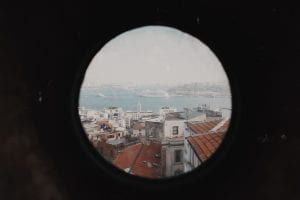
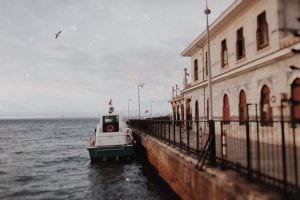
As a couple weeks have passed, I am feeling more comfortable here. The cry of gulls and police sirens mixes with the call to prayer, blurred noises against a blurred skyline. Looking out at the city lights and the curving sky along the Bosporus that cuts continents away from each other and connects the Black Sea to the Sea of Markus to the Aegean to the Mediterranean and beyond. The absence of comfort and the comfort of absence in the biggest city I’ve ever been to. 15 million official population, but closer to 20 million.
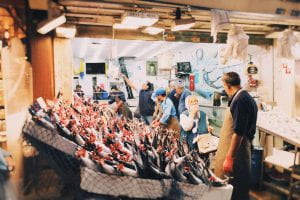
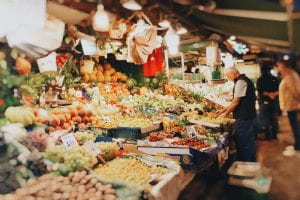
There is a dove nesting along the brick in the open air shoot on one edge of the apartment, this is her third try. The first clutch never hatched, second hatched but died, now she tries again as fall creeps over the city. Out across the Bosphorus, old neighborhoods and new buildings, skyscrapers stretched out like a ruined spine across the landscape. Smell of salt and garbage wafting from the ocean. Paw prints in the dust along the rooftop, rain drenched and crow feathers, wet brick and tile roof. In the park in the morning the dogs chase a cat up a tree.

When it rains the neighborhood is swaddled in grey, bathed in polluted rain water coloring the orange bright orange and the grey dark grey. The gulls fluff themselves up against the damp in the chimneys and a Coca Cola truck rolls down the street at the end of my ally.
Along Galata bridge, hundreds of men with fishing poles cast out between the ferries and barges, gulls flocking and flying, cigarettes half as common as fingers. Wandering the market streets, fish and fruit vendors, a haunch of a cow in a wheelbarrow, tilted into a metal shoot in the ground. Smell of salt, spice, sweets, fish, fruit, garbage, incense, mud, and shit. Riding the ferry as the sun sets out over hundreds of cargo ships coming to port. Sitting in the water like great metal insects. No wings. Sprawling city.
I have been trying to orient myself to the project I proposed, though it has changed already before arrival and as I get to know the place just a little. I have connected with some organizations that work with displaced people, and hopefully will have volunteer opportunities beginning soon, either here in Turkey or in Serbia. It can be challenging to independently feel capable of doing the project in the way I want, so connecting with organizations feels like a good support and accountability system to begin with. For now, I have been researching the migration of refugees into Europe – learning about the EU’s border policies, the increased funding of military and security operations, and the externalization of the EU’s borders through third entity countries. Here is an quick summarization of some of my initial research into the topics:
“The EU and it’s neighboring countries border regimes (primarily in and around the Balkans) are responsible for systematic, violent, and illegal pushbacks of migrants. The Border Violence Monitoring Network (BVMN) released a report in December 2020 detailing 892 testimonies from 12,654 people that were pushed back from the borders of Austria, Italy, Slovenia, Croatia, Hungary, Greece, & Bulgaria. 90% of these testimonies reported the use of violence. Other abuses reported include forced undressings, police spray painting crosses on peoples heads, and Muslims being forced to burn the Quran.
These push backs are illegal and violate the European Convention on Human Rights. While the European Court of Human Rights has condemned the pushbacks and some investigations into Frontex (European Border and Coast Guard) have begun, there have yet to be consequences or signs of reform from the EU Member States and their responsible agencies. Meanwhile, the EU is increasing funding to security and military operations at its local and externalized borders.
The EU’s 2021-2027 budget has drastically increased funding to security, defense, and border protection. Frontex will be provided with unprecedented €5.6 billion, a 194% increase from the previous budgetary cycle. This funding will expand their role to oversee member states’ use of EU migration funds and develop its ‘standing corps’ of 10,000 border guards.
Along with the increase in funding, Frontex and EU Member State governments have begun to defend themselves when confronted with evidence of pushbacks using questionable legal grounds. This is of concern to human rights defenders, who fear that the EU will move toward legalizing pushbacks, particularly since a European Court of Human Rights ruling in 2020 which said that, under certain circumstances, Spain had the right to use push backs.
Overall, the takeaway is that the EU is increasing the funding to border police, engaging in illegal and violent pushbacks, and moving toward a more authoritarian and anti-immigration standpoint.”
Sources:
Aulsebrook, Gigi, et al. “Pushbacks on the Balkan Route: A Hallmark of EU Border Externalisation.” Pushbacks on the Balkan Route: a Hallmark of EU Border Externalisation | Forced Migration Review, Forced Migration Review, Nov. 2021, https://www.fmreview.org/externalisation/aulsebrook-gruber-pawson
Radjenovic, Anja. “Pushbacks at the EU’s External Borders – European Parliament.” Pushbacks at the EU’s External Borders, European Parliment, Mar. 2021, https://www.europarl.europa.eu/RegData/etudes/BRIE/2021/689368/EPRS_BRI(2021)689368_EN.pdf
Jones, Chirs, et al. “At What Cost? – Statewatch.” At What Cost? Funding the EU’s Security, Defence, and Border Policies, 2021–2027, Statewatch, Apr. 2022, https://www.statewatch.org/media/3272/at-what-cost-eu-security-budgets-2021-27-sw-tni.pdf
Protecting Rights At Borders. (n.d.). Human dignity lost at the EU’s – prod.drc.ngo. Retrieved October 22, 2022, from https://prod.drc.ngo/media/rzplexyz/prab-iii-report-july-to-november-2021_final.pdf
If you’re interested to learn more about migration politics in Europe and the EU and incidents of border violence, check out the sources above, The Border Violence Monitoring Network: https://www.borderviolence.eu/ and Collective Aid: https://www.collectiveaidngo.org/
Here are a few more photos from the first weeks, and if anyone is interested to see more they can be found here: https://vsco.co/manyghostss/gallery Overall, things are good. I am settling into the place and the project, making connections, and finding opportunities beginning to arise.
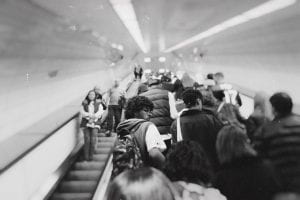




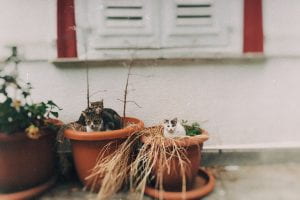
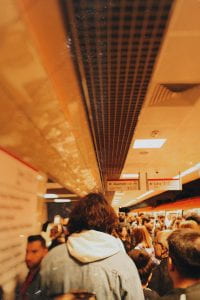
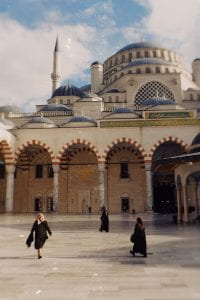
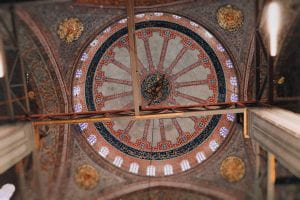

So glad you’re exploring this beautiful city to orient you in time and place. Good luck on forging networks and connections
The images are so strong. Your photographic eye for detail and framing remains incredible, but this time the ruminative writing captured me equally. I love your attention to small things — the nesting birds, roaming cats, varieties of smells. As I am in NYC at the moment, I relate very much to your big city experience. So glad for you to have this opportunity.
P.S. – I also LOVE the framing of “archiving a world in transition.” That is truly brilliant.
Jericho, this is beautiful. seeing all of this through your magical words and warm photos is so special…bellingham feels strange without you here…
much love 🙂
So energized by your photos and writing! Can’t wait to see more!
The start of a wonderful adventure – thanks for sharing
What an important blog.
I’m looking forward to following your journey.
Thank you so much for sharing!
Jericho, you never fail to amaze the heck out of me. You are so very talented. Thank you for sharing this with us.